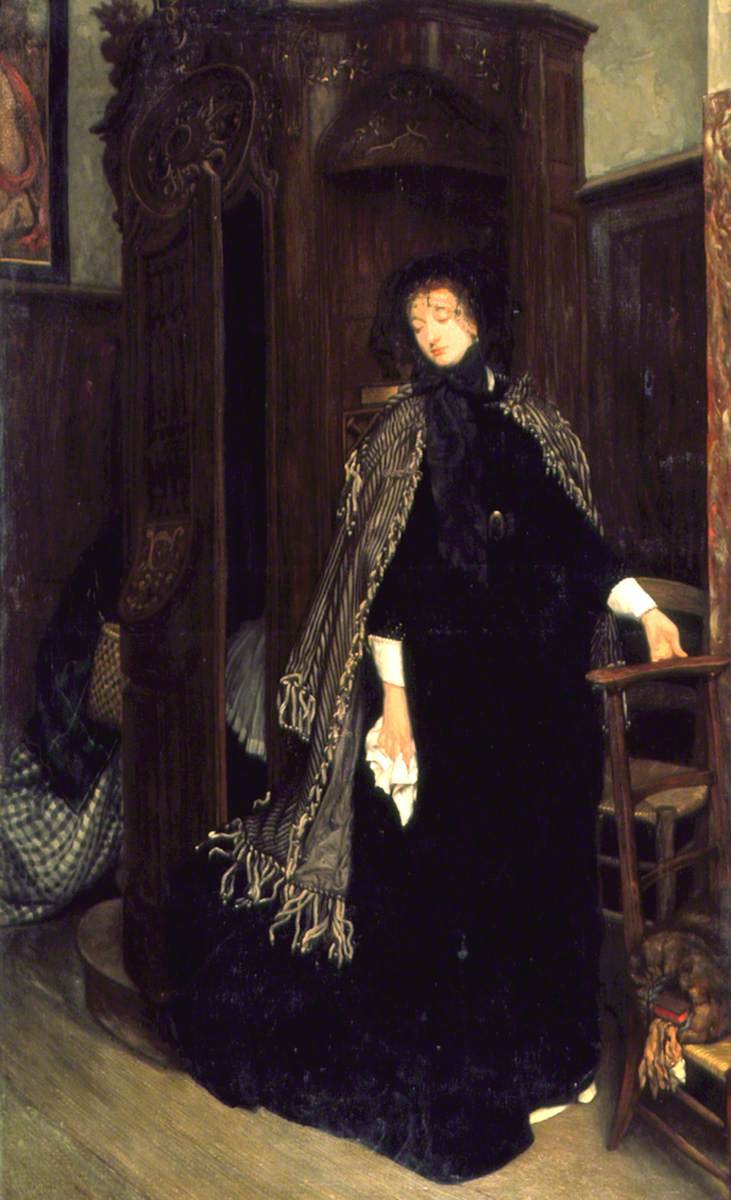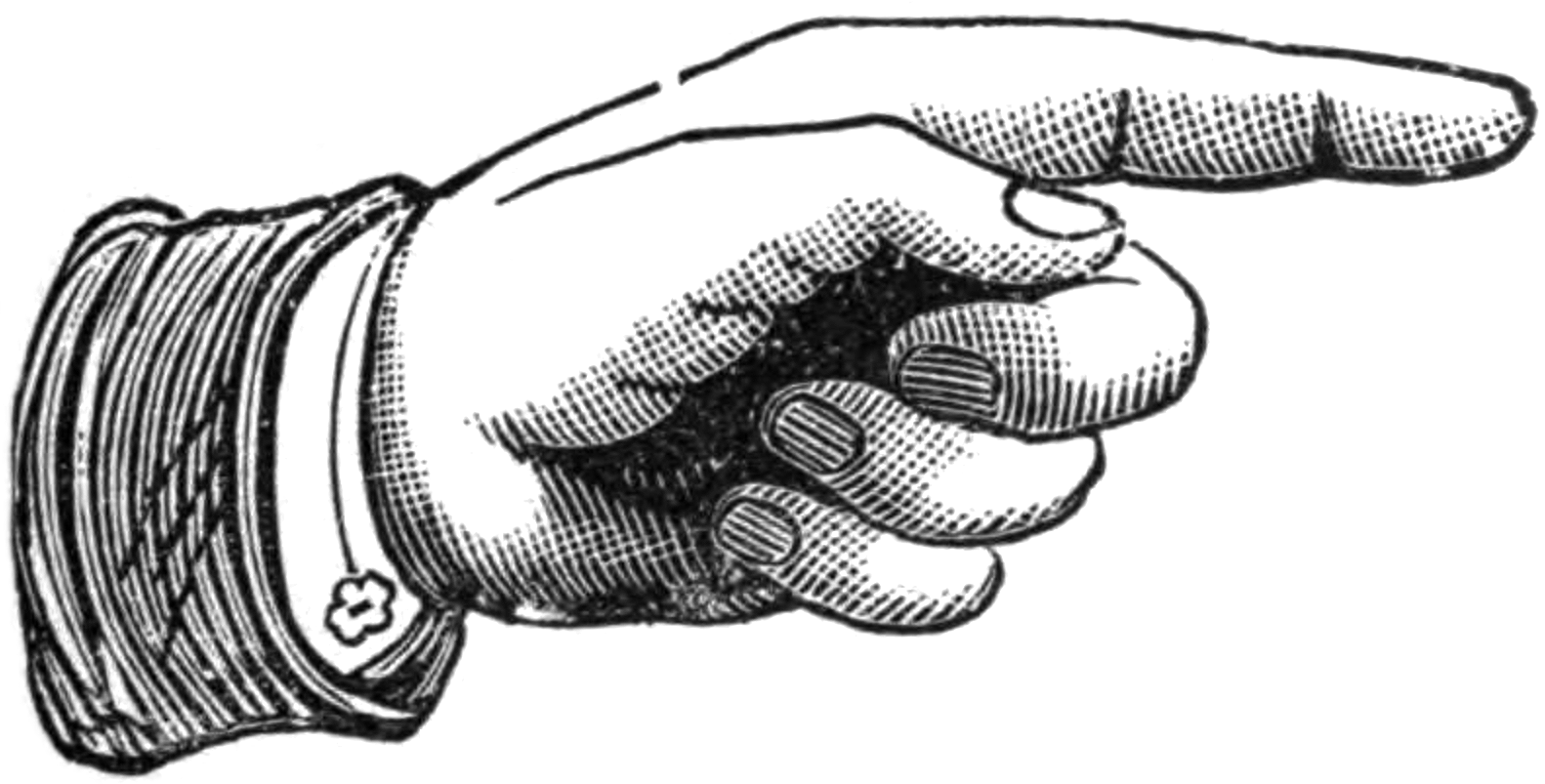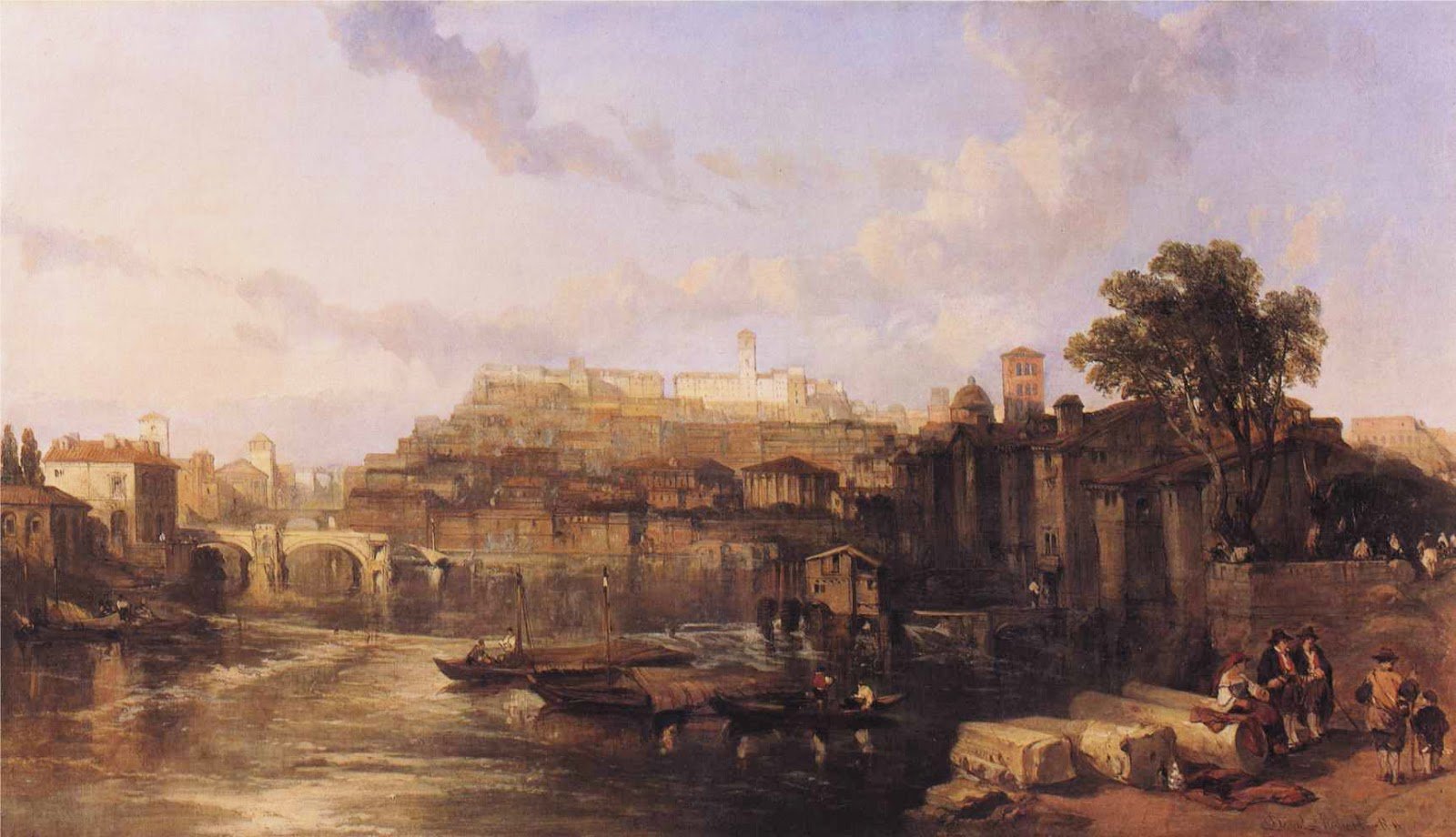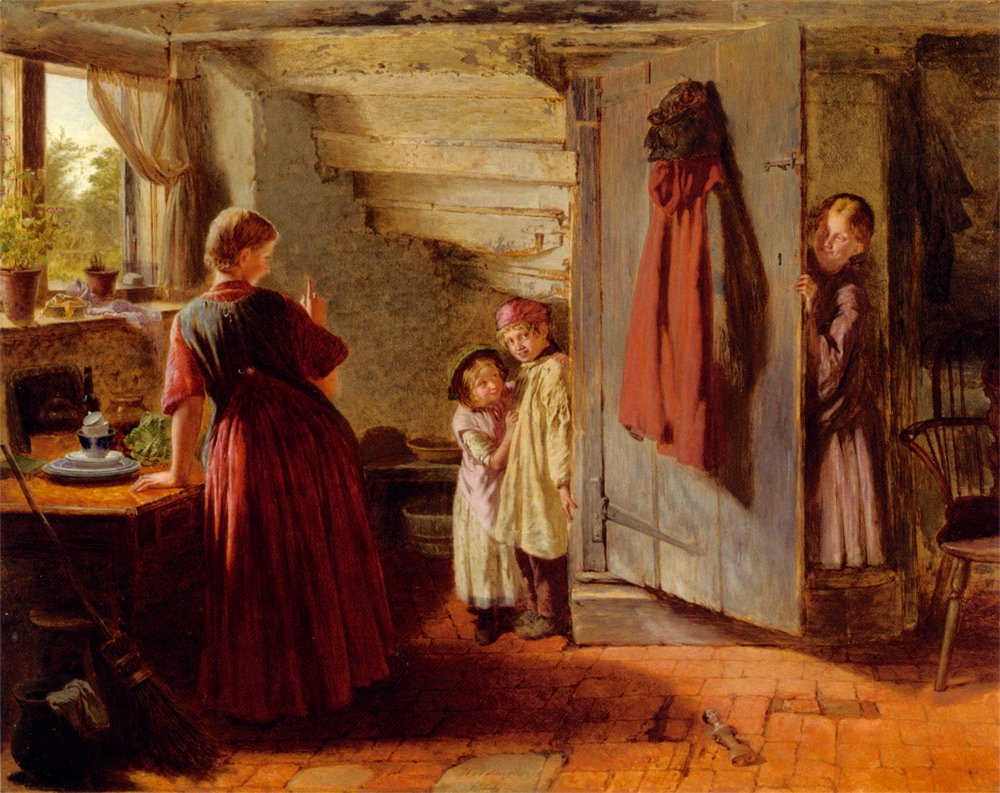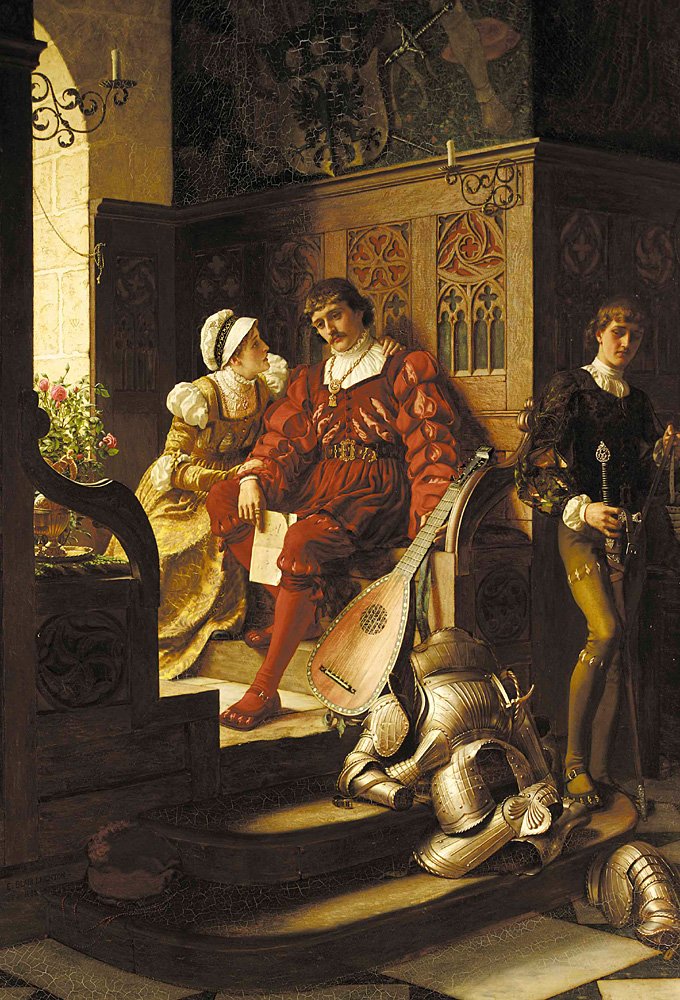James Jacques Joseph Tissot, In Church
A widow falls under the spell of an Evangelical clergyman.
Here is another novel by Trollope, for whom see Novels 029, 079, 138, 189, 190, and 191.
“This is certainly the best novel that Mrs. Trollope has produced, as regards dramatic execution and development of character. It . . . shows how the highest and best feelings of our nature may be turned by evil guidance and misdirected enthusiasm.” Literary Gazette, September 16, 1837
“Never has the affectation of piety been more mercilessly lashed. . . . Her object—a laudable one, as every one must admit, has been to show the pernicious effects of sectarian bigotry. . . . This, Mrs. Trollope has done with unexampled vigour and ability.” Sunday Times, September 17, 1837
A contrasting view:
“To invent a succession of domestic atrocities, and then fasten them upon a particular class of religionists, proves nothing but that the author is an exceedingly illogical and absurd person. . . . In truth this work is very disagreeable. . . . Every thing in it is represented in excess . . . ; and the spirit of the whole is that of a perverse and tortuous mind, full of venom. . . . Other authors contrive to get out of themselves—to lose themselves in the fiction. . . . Mrs. Trollope never does this; she is always present to us in her books; we feel her influence in the bitter taunt, the vulgar spleen, the ill-natured reproof, the scurrilous criticism, and the giggling cant of good-breeding.” Court Magazine and Monthly Critic, October 1837
Download this fortnight’s novel:
v.1 https://archive.org/details/vicarofwrexhill01trol

